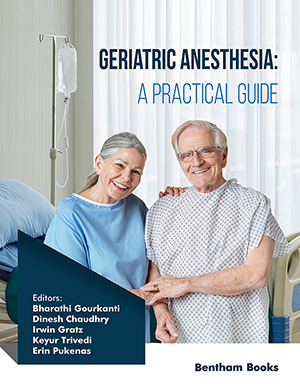Abstract
There are several controversies when it comes to geriatric anesthesia
including:
1. Determining the appropriate anesthesia technique: Geriatric patients may have
decreased organ function and may be more susceptible to the adverse effects of
anesthesia. There is ongoing debate about the best anesthesia technique for older
adults, with some arguing for the use of regional anesthesia and others advocating for
general anesthesia.
2. Perioperative Beta-blockers: The use of perioperative beta-blockers continues to be
debatable. On one hand, evidence suggests beta-blockers may reduce perioperative
cardiac events in the elderly. On the other hand, there are concerns and potential risks,
especially in this population.
3. Cognitive impairment: Older adults may be at increased risk of delirium and
cognitive impairment after surgery. The use of certain medications, such as propofol or
midazolam, may increase the risk of cognitive impairment. There is ongoing debate
about the best way to minimize the risk of cognitive impairment in older adults.
4. Pain management and Frailty: Geriatric patients may have increased sensitivity to
pain and may require higher doses of pain medication. However, older adults may also
be at increased risk of adverse effects from pain medications, such as respiratory
depression.
5. Advance care planning and ethical considerations: Geriatric patients may have a
higher risk of complications and death after surgery. Advance care planning, such as
discussing the patient's goals of care and treatment preferences, can help ensure that the
patient's wishes are respected in the event of an emergency. Geriatric patients may have
a decreased ability to make decisions about their care due to cognitive impairment or
other factors. There is ongoing debate about the best way to obtain informed consent
from older adults and ensure that their wishes are respected.
6. Cardiac-related controversies including the use of Aminocaproic Acid in CABG
surgeries. There are several studies that have shown reduced bleeding and the need for
blood transfusions, while others have raised concerns about an increased risk of
adverse events, such as renal failure and thromboembolic events.
Keywords: Advance care planning, Controversies, Cognitive impairment, Geriatric anesthesia, Hip-fracture surgery, Pain management, Perioperative beta-blocker.






















